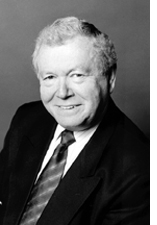By Rabbi Dow Marmur
 TORONTO, Canada–Women are reviving Judaism. I’ve been part of the Reform Jewish movement since 1957 when I enrolled in a rabbinic college in England. Though in theory Reform Judaism was fully committed to gender equality, there was still little of it in practice other than that, unlike in Orthodox synagogues, women and men sat together at worship services.
TORONTO, Canada–Women are reviving Judaism. I’ve been part of the Reform Jewish movement since 1957 when I enrolled in a rabbinic college in England. Though in theory Reform Judaism was fully committed to gender equality, there was still little of it in practice other than that, unlike in Orthodox synagogues, women and men sat together at worship services.
The only woman teacher at the college was more competent than most rabbis, yet the liberal institution in Germany where she studied in the 1930s would not ordain her. It took many more years before rabbinic schools, including mine, ordained women.
However, today there are probably more women studying for the Reform and Conservative rabbinate than men and several women now occupy prominent rabbinic positions. My college, which I’ve just revisited almost 50 years after my ordination, has recently appointed a new principal — a woman graduate.
Another woman graduate is the new senior rabbi of the “cathedral” Reform congregation in London. She was an active politician for many years and is a member of the House of Lords. Her colleague in a neighbouring liberal congregation is also a woman and a graduate of the same school.
Early next year, the umbrella organization of Reform Judaism in Britain will welcome its new official spokesperson, yet another woman graduate.
In Canada for the last 30 years Holy Blossom Temple in Toronto, like other Reform synagogues in the country, has had women rabbis. Currently it has two. One, Rabbi Yael Splansky, has just edited the congregation’s new prayer book that will greatly enrich the worship experience of generations to come.
The two lay members of the committee that produced the book are also women. Their contribution is richly reflected in the tone of texts and commentaries.
The traditional metaphysical notions of God as the all-powerful, all-knowing and all-good Being that has been the favourite target of best-selling atheists in recent years has been supplemented, even replaced, by mythological notions of God the Nurturer as described in traditional Jewish sources.
Some exponents of Christianity, often aided and abetted by the media, like to depict Judaism as an obsolete relic from a distant past. Such a characterization is a malicious distortion.
Yes, as in other faiths there are still strong and growing fundamentalist elements in Judaism. They appeal to people who seem to prefer simplistic certainties to the burdensome quest for truth. But there’re also many modern teachers who are transforming communities that the self-styled upholders of authentic Judaism cannot reach.
I believe that liberal exponents of traditional faith are the future of what’s often described as organized religion, in Judaism no less than in Christianity and Islam.
When I was a congregational rabbi, I’d usually meet with new members. It was almost invariably the women who were keen to join because they felt that here they’d be treated as equals. Their male partners were often more drawn to the boys’ club atmosphere they imagined they’d find in Orthodox synagogues.
I have the highest regard for Orthodox Judaism. In fact, I’ve been accused of bringing some of it into the Reform congregations I served, for I believe that liberalism must be open to influences from all directions, old no less than new. But what I know of Jewish history convinces me that the age-old exclusion of women from religious life isn’t authentic. It’s motivated by male insecurity, not divine decree.
Had that insecurity been allowed to continue unchecked, the vibrancy and relevance of contemporary Judaism would have been greatly diminished. The women are now helping to revive and celebrate it. Thank God.
*
Rabbi Marmur divides his year between Toronto and Jerusalem. This article is reprinted from The Star of Toronto